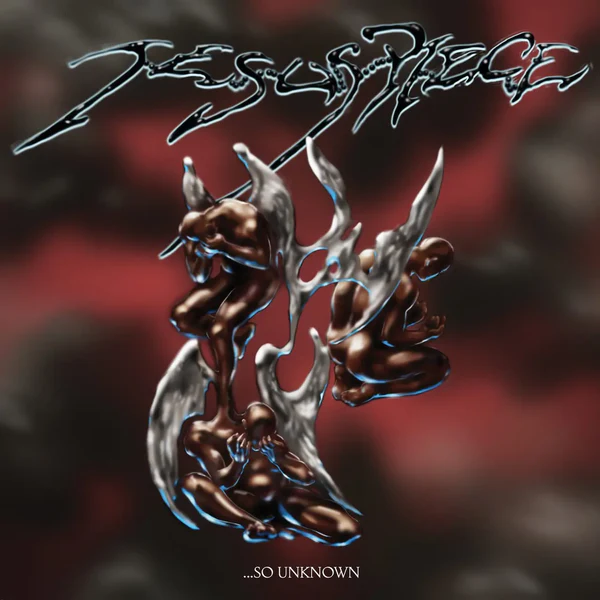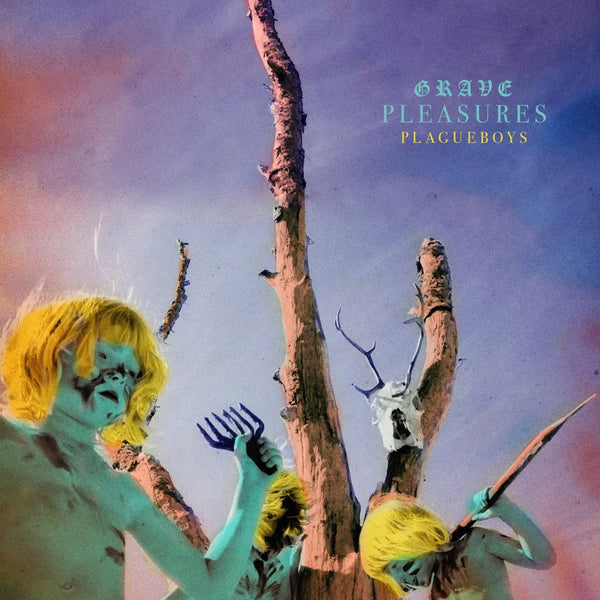
They don’t make a big point about it, but you can tell from their music that Grave Pleasures are fiercely anti-trends. Crucially nor are they purely revivalist; a great deal of the pleasure of their sublime third album Plagueboys (fourth if you count their classic as Beastmilk) is that in relation to those other albums, it sounds like a timeline in which the gothic post-punk of the 1980s has been allowed to endure and gestate into something further in its own time. Killing Joke, Gang of Four, Bauhaus, and The Sound all took such transformations, and by taking the time to care more for subtle new textures and lean further into their own innate chemistry that has them writing riffs none of those have ever written before like Heart Like a Slaughterhouse, the atomic apocalypse seduction songs of Grave Pleasures have become their modern parallel in remaining tied to no one particular era, and being catchy as sin. - Perran Helyes
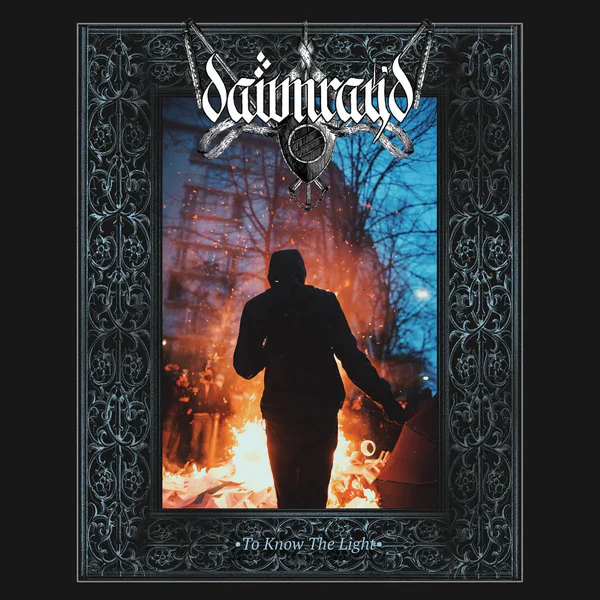
Dawn Ray’d abruptly called it quits in September, leaving the underground world to take stock of their achievements over the last decade, the rare band to have genuinely made enemies as a fearless part of the vanguard taking on fascism in black metal head on. It’s made more bittersweet by their final recorded work being such a towering statement, a ferociously defiant piece that acknowledges the increasing bleakness of the world every day and asks you to stand firm regardless, the traditional instruments and folk song basis tying it into a lineage of working class protest music going back centuries. Metal was warmer for their presence, but the sentiment of To Know the Light endures even past the band who wrote it. - Perran Helyes
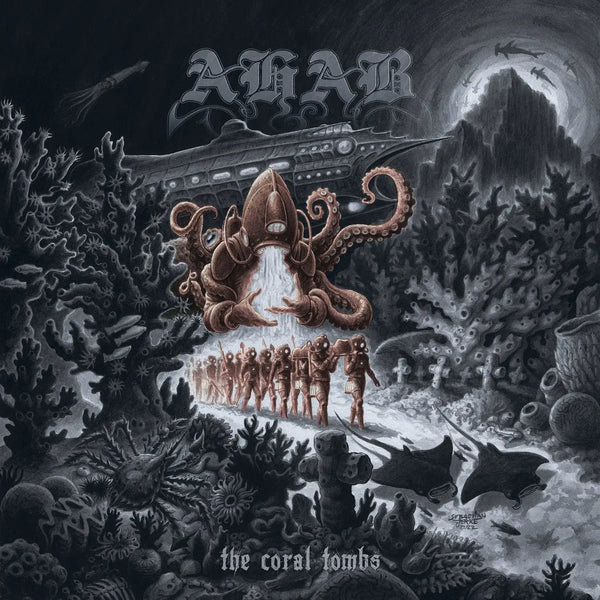
It took Ahab seven and a half years to produce a record after 2015’s The Boats of the Glen Carrig, and the fact that this is what they’ve produced puts them into the category of bands now for whom such a wait feels earned and the result of which feels pored over and cared for in every inch. The Germans have pretty much created their own field then mastered it, the art of progressive nautical funeral doom turning classic 19th century seafaring literature into yearning concept albums you can practically feel yourself drowning in, and their take on 20,000 Leagues Under the Sea makes the story feel more crushing than it ever has as the music is slowly over the course of the whole record wrenched ever-downwards into the abyss. - Perran Helyes
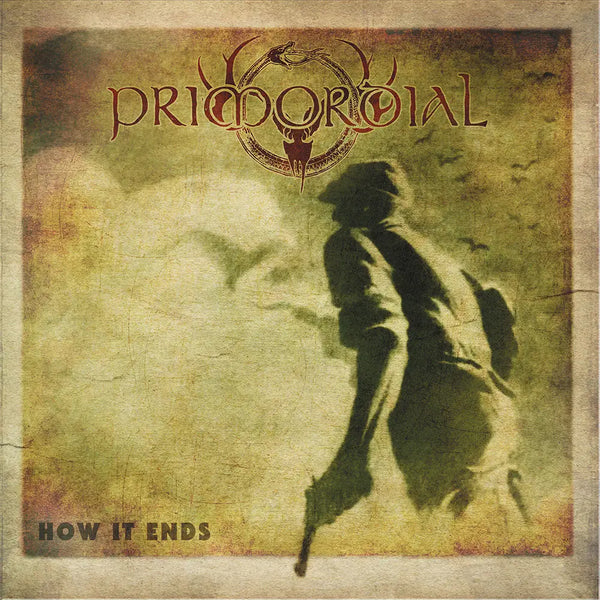
Once an isolated Celtic cousin of mainland Europe’s second wave black metal, Primordial arrive at album number ten and over thirty years as a band with no real equal. No one else contains the howling winds of Bathory, the grim-faced gloom of Paradise Lost, and the clenched fist bravado of Manowar, in an alchemy that so straddles the line between crushingly desolate and the most rousing thing you’ve ever heard. How It Ends with its ominous, hopefully not for themselves prophetic title takes stock of a world sliding into disarray, offering elegies in the likes of Pilgrimage to the World’s End and its sonic evocation of displaced peoples crossing stormy seas, and on that unbelievable title track raging against the dying of the light. - Perran Helyes
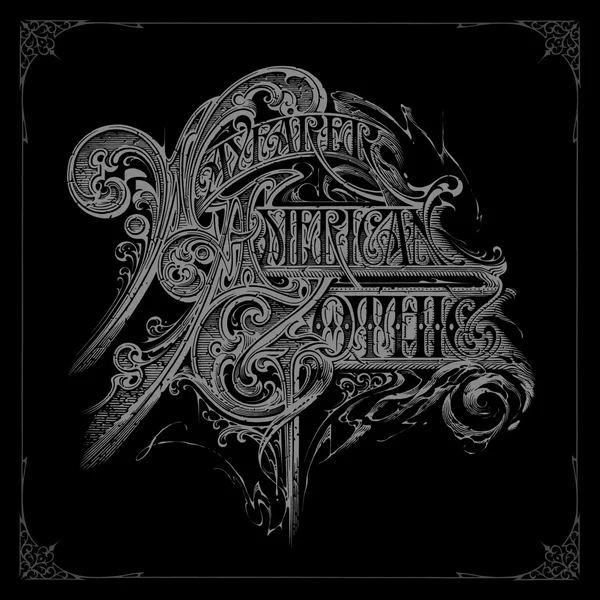
Wayfarer’s stamping of this album with that title American Gothic feels like a self-conscious acknowledgement that the evolution they’ve been on as a band has reached full definition. With 2018’s World’s Blood and 2020’s A Romance with Violence, it concludes a sort of trilogy that has seen them turn into one of the most unique black metal bands today, and use that specific Western and Americana focus to not just cosplay as lone riders in seedy saloons but ask how the passing of that world into history cleared the way for our own one. Gothic country songs like A High Plains Eulogy now sit firmly nestled within the tracklist, and truly feel like lingering transmissions of a previous century now haunting the present (a perfect, coincidental pairing with Martin Scorsese’s new film Killers of the Flower Moon). - Perran Helyes
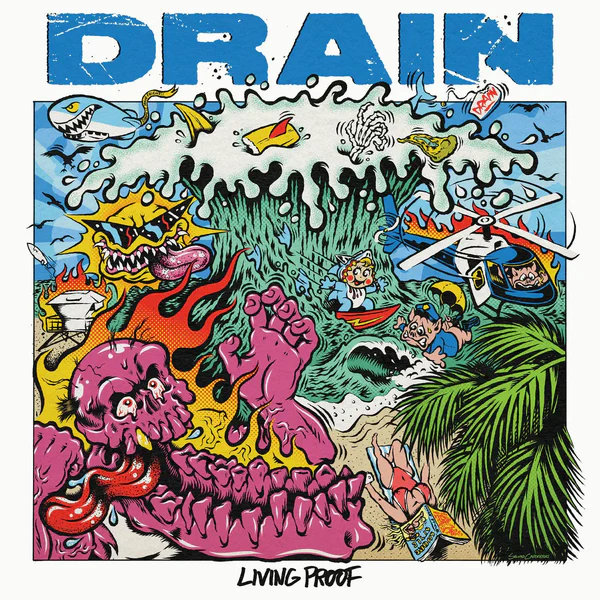
Do the Santa Cruz standouts attempt to reinvent the wheel sonically here - nope. The band's love for thrash heavy riffs with hardcore panache take the crossover blueprint and run with it - with one very important distinction. Drain dares to be fun. In a world where heavy music is almost always confrontational, brimming with angst and designed to tug at existing trauma, Drain casts an all inclusive net that brings all walks together in the pit. Tough as nails and good time to boot - Drain brings the party and there is very real value in that. - Ramon Gonzales
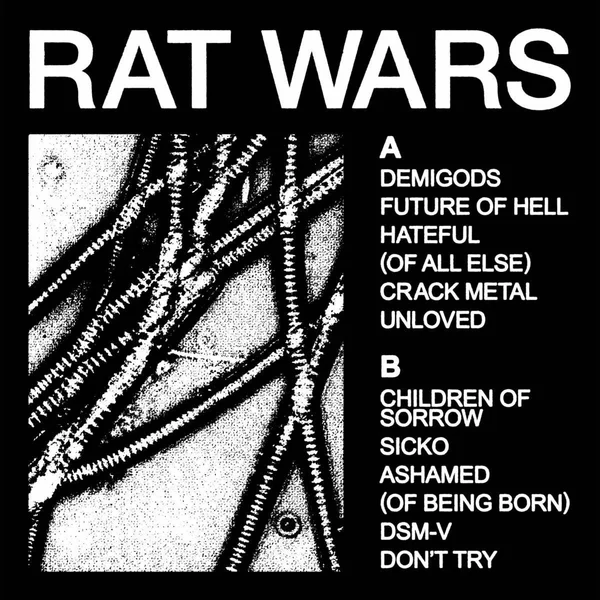
The veteran purveyors of noise punk, industrial and heavy electronica delivered arguably their most succinct effort to date with Rat Wars. Landing Godflesh as one of just two collaborations on the album served as a tasteful tip of the hat and asserted the band's creative pedigree, while still paving their own lane. An apocalyptic soundtrack of sorts, Rat Wars is a colossal effort that seamlessly weaves genres to craft something memorable. - Ramon Gonzales
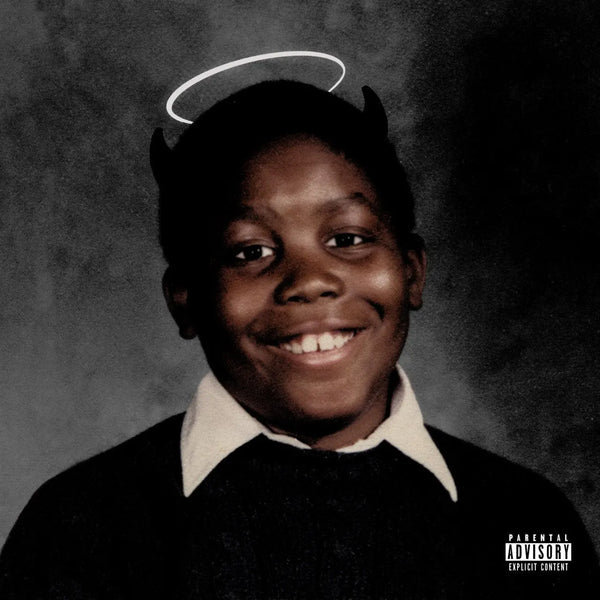
The many facets of Michael Render are on full display for his first solo album in more than a decade and the result is one of the best albums of the year regardless of genre. With entries that resonate as incredibly poignant and personal, the reflective nature of Killer Mike's pen is what make his stanzas stick. Working through the formative instances in his life, traversing loss and owning the man he has become permeates on an effort that underscores the narrative element long missing in hip hop. - Ramon Gonzales
